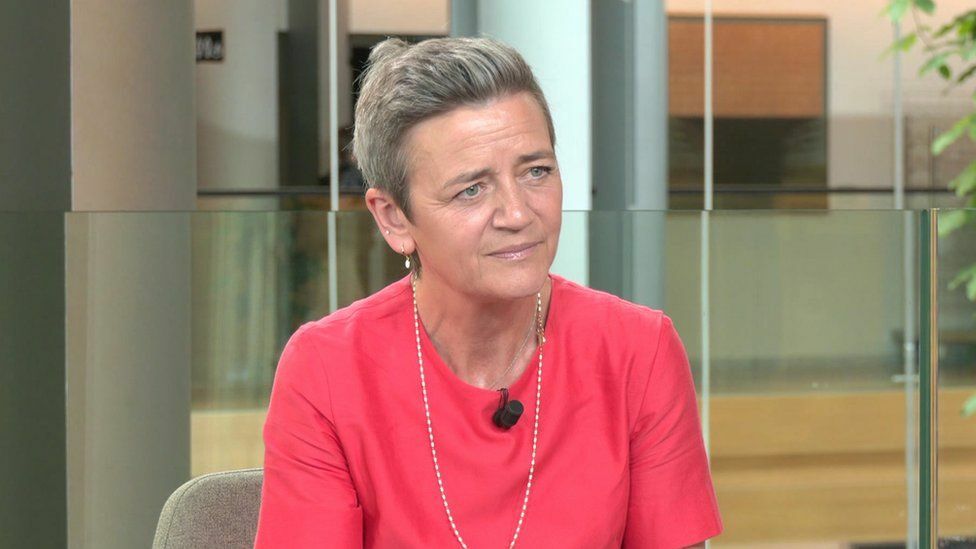AI discrimination more pressing than human extinction, says EU competition chief

The European Union’s competition chief, Margrethe Vestager, has highlighted discrimination as a more urgent concern than human extinction in the development of artificial intelligence (AI). In an interview with the BBC, Vestager emphasised the need for “guardrails” to counter the technology’s risks, particularly in areas where AI is used for decision-making that can impact livelihoods, such as mortgage applications.
The European Parliament is set to vote on the proposed AI Act, which aims to regulate the technology amid warnings of potential risks associated with rapid development. While some experts have cautioned that AI could lead to human extinction, Vestager believes that the technology’s potential to amplify bias or discrimination is a more pressing issue.
She said, “I think the AI risks are more that people will be discriminated [against], they will not be seen as who they are.” Vestager added that ensuring people are not discriminated against due to gender, colour, or postal code is crucial in areas such as banking and social services.
On Tuesday, Ireland’s data protection authority announced that it had placed Google’s planned EU roll-out of its AI chatbot Bard on hold. The authority is seeking information on how the company has identified and minimised data protection risks to potential users.
Vestager, who serves as the European Commission’s executive vice president, believes that AI regulation should be a “global affair.” However, she also emphasises the importance of prioritising consensus among “like-minded” countries before involving other jurisdictions, such as China.
She is currently leading EU efforts to establish a voluntary code of conduct with the US government. This would involve companies using or developing AI signing up to a set of non-legally binding standards. The AI Act’s current draft aims to categorise AI applications according to the level of risk they pose to consumers, with strict controls focusing on high-risk AI systems, such as those used to evaluate credit scores or access to loans and housing.
As AI continues to evolve rapidly, Vestager stresses the need for pragmatism in fine-tuning rules around the technology. She also highlights the risk of AI being used to influence future elections, emphasising the challenge for police and intelligence services to stay ahead of criminals in the race to utilise the technology.
The European Parliament’s proposals for the AI Act include restrictions on the use of biometric identification systems and the indiscriminate collection of user data for purposes such as facial recognition systems. Vestager explained, “We want to put in strict guardrails so that it’s not used in real-time, but only in specific circumstances where you’re looking for a missing child or there’s a terrorist fleeing.”
Before the AI Act can be finalised as the world’s first rulebook on the use and development of AI systems, the EU’s three branches of power – the Commission, Parliament, and Council – must all agree on its final version. The Act is not expected to come into effect before 2025.
Latest Thailand News
Follow The Thaiger on Google News:


























